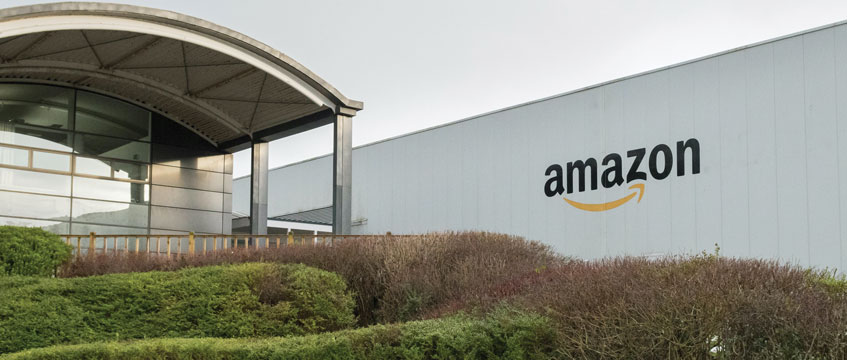Amazon warning hurts listed warehouse groups
Amazon has admitted that it has binged on too much industrial space, as it struggles to sustain online sales at lockdown levels.
Fears that the Amazon-propelled boom in e-commerce is running out of steam have wiped billions off the value of the world’s biggest warehouse owners in recent days, reversing some of the huge gains made by the sector during the pandemic.
A profit warning from the e-commerce giant on Thursday evening triggered steep share price falls, providing an indication of how much warehouse owners rely on the group as a customer for space and a bellwether for sentiment.
Amazon has admitted that it has binged on too much industrial space, as it struggles to sustain online sales at lockdown levels.
Fears that the Amazon-propelled boom in e-commerce is running out of steam have wiped billions off the value of the world’s biggest warehouse owners in recent days, reversing some of the huge gains made by the sector during the pandemic.
A profit warning from the e-commerce giant on Thursday evening triggered steep share price falls, providing an indication of how much warehouse owners rely on the group as a customer for space and a bellwether for sentiment.
Brian Olsavsky, Amazon’s chief financial officer, said on Friday that the company had overextended and its aggressive expansion would slow.
But it was not until the UK markets reopened after the long weekend that the pain began to be truly felt.
The share prices of the UK’s largest listed warehouse operators, SEGRO and Tritax Big Box, fell by between 7% and 8% when the market opened on Tuesday morning. New York-listed Prologis, the biggest warehouse owner in the world, with a market capitalisation of more than $110bn, has seen its share price plunge by more than 10% since Friday morning.
Jeffries analyst Mike Prew said in a note that Amazon’s caution about online sales growth was tempering warehouse developers’ optimism about the profit they could make from developing new space.
Amazon accounted for a quarter of all new warehouse demand in the UK in 2020 and 2021 as it invested heavily in extra capacity to capitalise on a jump in e-commerce sales during the pandemic, according to Savills.
But in the first quarter of this year, it accounted for just 3% of overall take-up.
The Times (£)
and The Times (£)
The FT (£)











